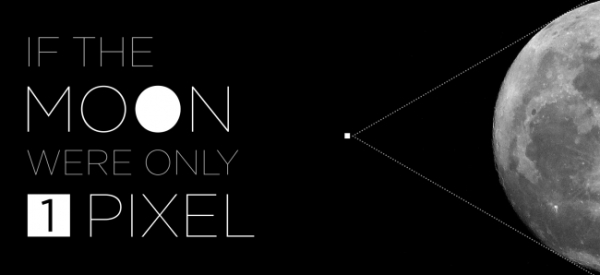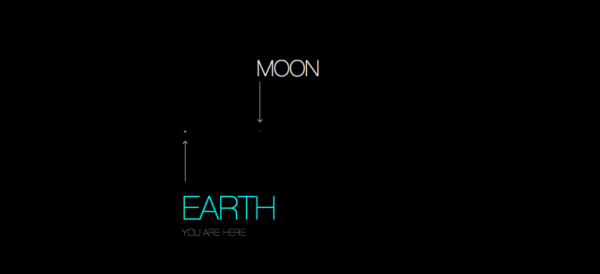When we talk about outer space, we have a tendency to use comparisons that are not necessarily true, but still represent large distances. However, If the Moon Were 1 Pixel infographic created by Josh Worth uses pixels to accurately measure out the solar system. Explore the full interactive design here!
Picture from mic.com
I was talking about the planets with my 5-year-old daughter the other day. I was trying to explain how taking a summer vacation to Mars in the future will be a much bigger undertaking than a trip to Palm Springs (though equally as hot). I kept trying to describe the distance using metaphors like “if the earth was the size of a golf ball, then Mars would be across the soccer field” etc., but I realized I didn’t really know much about these distances, besides the fact that they were really large and hard to understand. Pictures in books, planetarium models, even telescopes are pretty misleading when it comes to judging just how big the universe can be. Are we doing ourselves a disservice by ignoring all the emptiness?
So I thought I would see if a computer screen could help make a map of a solar system that’s a bit more accurate (while teaching myself a few things about javascript, SVGs and viewports along the way).
Not that pixels are any better at representing scale than golfballs, but they’re our main way of interpreting most information these days, so why not the solar system?
I love this animated scale representation of the solar system. Just to fit on the same page, we usually see all of the planets close together in posters and text books. But in the long run, we lose grasp of how much empty space is truly around us.
Found on Mic.com

